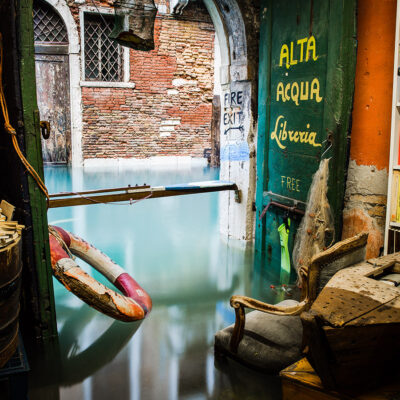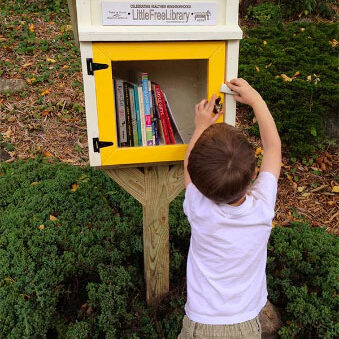Everything Sad Is Untrue (a true story) by Danel Nayeri
When I was teaching third grade, my students would celebrate their writing every few months with a Publishing Party for anyone who wanted to listen to them read their masterpieces. On one occasion, a student asked if he could write a dedication for his story. I said I thought that was a great idea and he said he was glad because he had just finished it. Because we were short on time, his dedication was the one thing I didn’t proofread. As he began to share it with our audience, I discovered that it far eclipsed his story. He thanked his grandmother for sitting on the porch with him at night and his grandfather for taking him fishing. He thanked Aunt Betty for taking him for ice cream and Uncle Tom for always giving him the change he found in his pockets. He thanked his father for buying the beautiful house they lived in and his mother for making his favorite meals. He named each fish he and his grandfather had caught together and each meal his mother prepared. He had an exceptionally large and loving family which he described with affection, pride, and an artist’s gift for detail. I don’t think he left anyone out and he received a standing ovation from our audience (many of whom had been mentioned in said dedication). The only problem was that there was no way his two-paragraph story could live up to the three-page epic that preceded it. Had I been a more skilled writing teacher, had I even read the dedication, I would have shown him how to weave his family memories into his story as Daniel Nayeri so superbly does in Everything Sad Is Untrue (a true story).
Mr. Nayeri has created what I refer to in my blog as a fluid novel, one that includes a variety of formats and genres. He gifts us with stories of his great great grandparents, great grandparents, Mom and Dad, stepdad, sisters, friends, enemies, and heroes from Persian literature; stories he has chosen to recount in his voice as a twelve-year old refugee. This is his life as he remembers it, with a few names changed and a slightly altered timeline. Through our fifth-grade narrator, we learn of Mr. Nayeri’s charmed life in Iran until age eight. Then, his mother Siri makes a life-changing decision and has to flee the country with her children. Her husband elects to remain in Iran. Ultimately, Siri and the children obtain asylum in Edmond, Oklahoma, where the narrator recalls: “I am ugly and I speak funny. I am poor. My clothes are used and my food smells bad. I pick my nose. I don’t know the jokes and stories you like, or the rules to the games. I don’t know what anybody wants from me.” He misses his father, his name has been changed from Khosrou (a name rich in Persian history) to Daniel, and like Scheherazade in 1,001 Arabian Nights he is recounting his stories to save his life. It isn’t a king Daniel tells his stories to and writes them for, but his disbelieving classmates. It isn’t his physical life he is safeguarding but his identity and his humanity. He is pouring out his memories in order to keep them alive.
In the following quote, Daniel describes his fear of the past being erased from his memory.
If you really want to know the truth, it’s the forgetting that hurts most. Not the secret police trying to murder us. Not Brandon Goff shooting paper clips at my neck. Not Ray. Not everyone thinking I’m gross.
Those pains are pains that make me strong.
I imagine the more they bleed me, the more I become like jerked meat—a dried bull, a hard leather.
But no matter how hard I clench my fist, the memories pour out of it and disappear. When you kill a monster in Final Fantasy, it makes a sound like a groan and disintegrates into sand. None of them are strong enough to keep two grains together once they die.
You could imagine the Elemental Fiends clenching their toothy jaws—but even they just crumble.
That’s what forgetting your grandpa’s face feels like. There’s no good in it. Nothing to gain but nothing. A piece of your heart makes a sound like a groan and disappears. Then you poke at it sometimes, trying to remember what was there by the shape of the hole. That’s it. You are less.
The truth is that’s why I’m writing all this. Behind me is the elemental fiend of my memories crumbling into powder. I watch an arm disintegrate and instantly forget what was there.
Did I ever hug Baba Haji? What was that like?
Did he smell like a farmer or a shepherd? He was both.
Did his arms feel strong?
You don’t get to choose what you remember.
A patchwork memory is the shame of a refugee. [pp. 48-49]

















Perfect review for a perfect book. Thank you ❤️